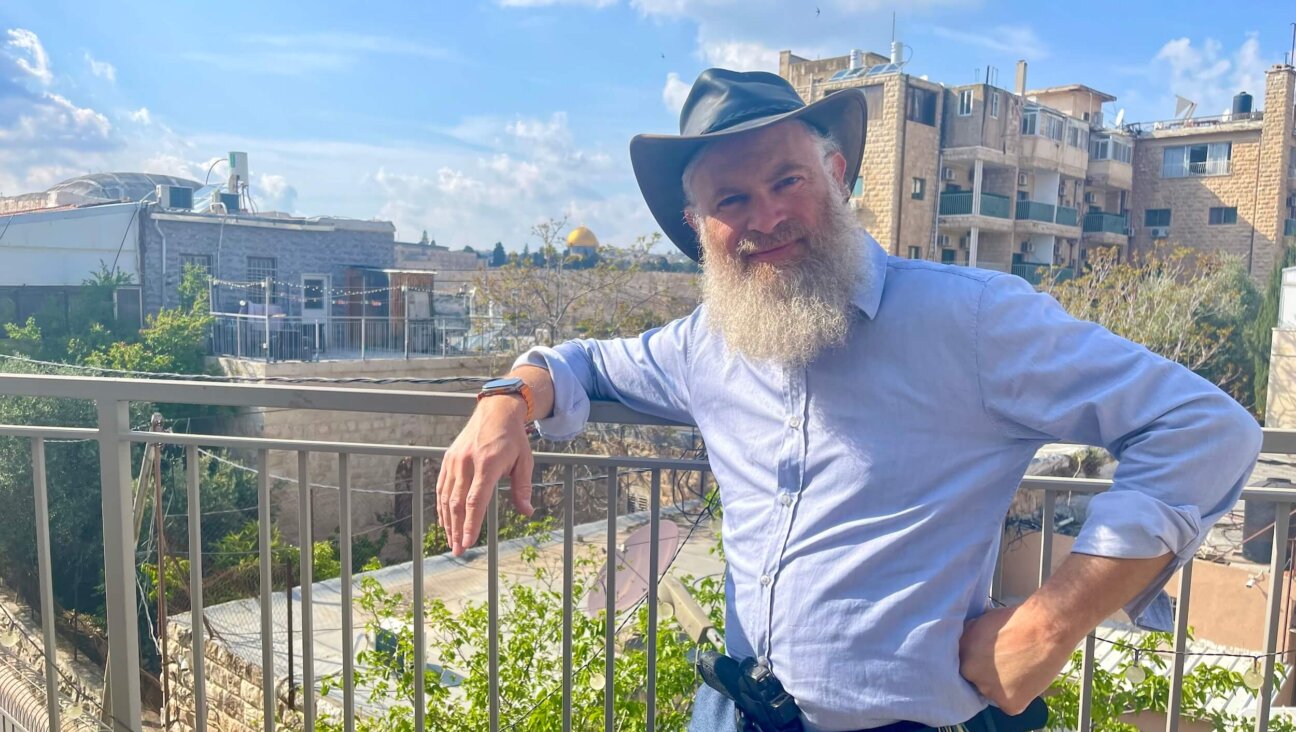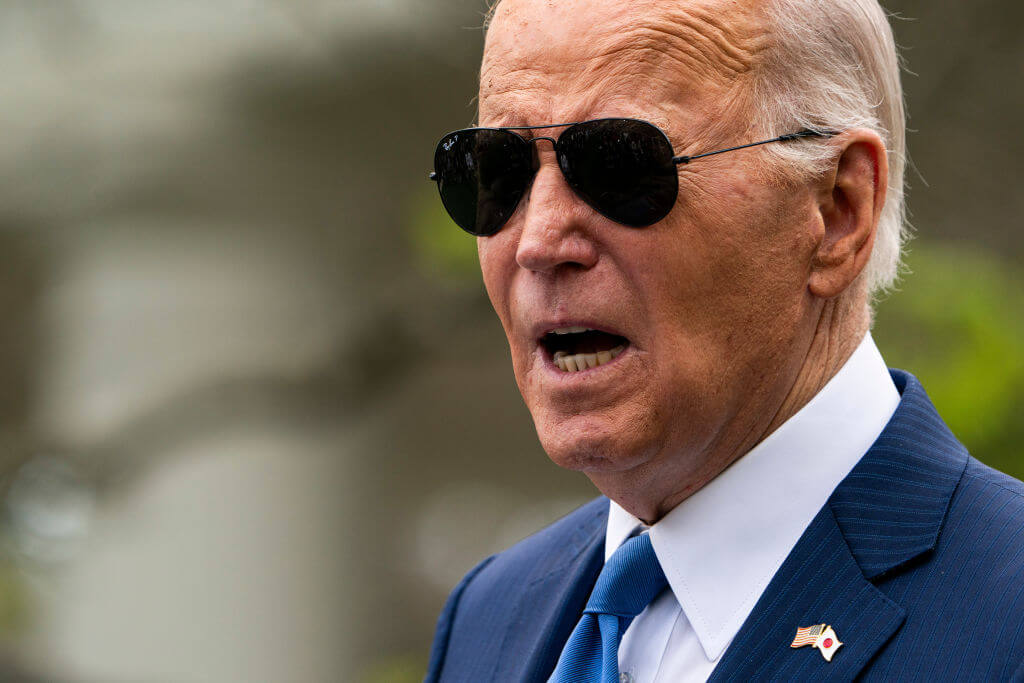Investigation finds history of Reform movement hiring disgraced rabbis, ‘sexualized’ camp cultures

Union for Reform Judaism Photo by Getty Images
The Reform movement’s congregational arm at times enabled the sexual abuse of children by clergy and summer camp employees, according to an investigation released by the Union for Reform Judaism Thursday.
Through the mid-1990s, the URJ reportedly maintained a longstanding practice of hiring rabbis who had been sanctioned for sexual misconduct, including a rabbi who allegedly raped his 13- to 15-year-old students. The director of the organization’s youth division, Rabbi Allan “Smitty” Smith, cultivated a “sexualized culture” at the camp he ran for Reform teen leaders until 2001, and harassed multiple women, the report by outside investigators found.
The report, the last of three investigations into sexual misconduct across Reform movement institutions, found 17 incidents of sexual misconduct by adults against minors, 16 incidents between minors and 39 incidents between adults, although investigators noted that the actual numbers are likely much higher.
Did you experience inappropriate behavior at a URJ summer camp, program or in a URJ workplace? If you’d like to share your story or perspective contact Forward reporter Arno Rosenfeld at [email protected]
Rabbi Mary Zamore, director of the Women’s Rabbinic Network, said the findings of this report are especially painful because of the revelations of harm to children.
“It is obviously very hard to read and every member of the Reform movement will be processing this for a long time to come,” said Zamore, whose organization helped push for the series of investigations. “The protection of our children has to be paramount to any other value we uphold.”
The URJ report is aligned with similar documents produced last fall by Hebrew Union College-Jewish Institute of Religion, the Reform seminary, and the Central Conference of American Rabbis. Those investigations found an “old boy’s club” mentality in the Reform movement dominant through the early 1990s, including the revelation that the men who led HUC-JIR for nearly three decades had sexually assaulted and harassed women.
The series of examinations was part of a Reform movement-wide effort to reckon with sexual misconduct and came at the urging of activists including the Women’s Rabbinic Network.
The newest report, authored by attorneys hired by the URJ from the New York-based firm Debevoise & Plimpton, found that the Union for Reform Judaism hired at least five rabbis who had been accused of sexual misconduct at their congregations out of a belief that “an incident of sexual misconduct might end a congregational career, but that it did not necessarily mean that a rabbi’s career had to be over completely,” if the rabbi had done teshuva, or repentance. That hiring practice ended in 1996, when Rabbi Eric Yoffee became president of the organization.
The report also identified various instances of harassment and inappropriate behavior across several camps and URJ workplaces dating back to the 1970s, although most of these incidents were not detailed.
URJ President Rick Jacobs and Jennifer Brodkey Kaufman, chair of the organization’s board, said in a joint statement that they would be hosting gatherings to process the findings in coming weeks.
“In every respect, the identified abuses represent conduct that is antithetical to Reform Jewish values and the core values of the URJ,” Jacobs and Kaufman said. “Going forward, we are committed to creating environments that better protect the safety and well-being of everyone in our community.”
Reform Jews react
The reaction to the report on social media was swift, with members of alumni groups for the two Reform summer camps named in the report sharing shock and dismay on Facebook.
“My tummy is churning,” one woman wrote in a group for people who attended Olin-Sang-Ruby Union Institute, a camp outside Milwaukee better known as OSRUI (“oz-roo-ee”). Investigators found that Gerard “Jerry” Kaye, who led the camp for nearly 50 years until his retirement in 2017, harassed at least six women.
The report also included details of abuse at OSRUI allegedly perpetrated by Rabbi Jon Adland in 1977, when he was a 23-year-old rabbinic student working at the camp. According to the investigation, Adland kissed and digitally-penetrated three 13 and 14-year-olds. Adland said he did not recall those incidents but felt “ashamed” and offered to apologize to the women.
While Adland is not listed on the Central Conference of American Rabbis’ webpage for rabbis who have been censured, the organization said that Adland was still restricted from working with minors. Adland retired from Temple Israel in Canton, Ohio, in 2019 and is listed as rabbi emeritus of the congregation’s website. He declined a request for comment from the Forward.
Michelle Shapiro Abraham, a director of the URJ’s youth division, shared the report to several groups on Facebook with an apology from the organization.
“To fulfill our shared Jewish tradition of t’shuvah (repentance), we seek to earn your forgiveness and will do everything in our power to right the wrongs of the past,” the URJ’s post stated.
But in other groups, it was former campers who posted a link to the report. In a group for alumni of Camp Kutz, which was meant to train teenage leaders of the Reform movement until it closed in 2019, Monica Corton posted a copy of the report Thursday afternoon.
“The fact that it has taken some 40 years to look into these matters is shocking,” Corton wrote.

Rabbi Allan “Smitty” Smith
The report found that Smith, the longtime director of Kutz, both “set a permissive tone” at the camp and harassed several of his subordinates. In one case, he allegedly responded to a woman’s request for a pay increase by sitting down next to her, stroking her arm and asking “how [her] marriage was going.” In another incident, a witness told investigators that he told her to have sex with a rabbi on the camp staff who she did not get along with so that “things would be easier.”
Smith, who died in 2019, stepped down as Kutz director in 2001. Smith was widely praised following his death, with former URJ director of camping Paul Reichenbach saying that Smith was, “universally recognized as the most accomplished and admired informal Jewish educator of his generation.”
Rabbi who allegedly raped students hired by URJ in 1980s
The report also included shocking allegations of abuse by a fourth individual, Rabbi Jay “Bahir” Davis, a past director of education for the URJ, who currently leads a minyan in Colorado. Davis was denied ordination by the Reform rabbinical seminary in 1981 and again in 1985 over reports that he sexually touched and raped 13- to 15-year-olds and led inappropriate “games” in the classroom while working at a Westchester synagogue between 1977 and 1981, when Davis was in his late 20s. Davis denied wrongdoing.

Rabbi Jay “Bahir” Davis
The son and grandson of prominent rabbis, Davis was hired by the URJ in the “mid 1980s” and was eventually privately ordained by three unnamed rabbis. Davis said in an online biography that Rabbi Alexander Schindler, then-president of the URJ, signed his ordination certificate but investigators said they could not verify that. Davis would go on to work at a Florida Reform synagogue, a URJ camp and to be active in the movement’s youth programming. He faced an ethics investigation by the Jewish Renewal movement in 2006, after which he resigned. He did not participate in the investigation. Davis states in an online biography that he “refuses to be connected with any one movement, preferring to serve the entire spectrum of the Jewish community” and identifies himself as the leader of Rocky Mountain Hai, a chavurah based outside Denver with little online presence. He offers life cycle services on his LinkedIn page.
Davis did not respond to a request for comment Thursday.
Authors of the report, led by Mary Beth Hogan, made several recommendations that the URJ leadership said it would accept in full. These include creating additional resources to handle complaints of sexual misconduct, improving policies around consensual employee relationships and improving the retention of personnel records. The investigation also found that the URJ had improved its practices in recent years, including increasing sexual consent training at its camps.
A message from our Publisher & CEO Rachel Fishman Feddersen

I hope you appreciated this article. Before you go, I’d like to ask you to please support the Forward’s award-winning, nonprofit journalism so that we can be prepared for whatever news 2025 brings.
At a time when other newsrooms are closing or cutting back, the Forward has removed its paywall and invested additional resources to report on the ground from Israel and around the U.S. on the impact of the war, rising antisemitism and polarized discourse.
Readers like you make it all possible. Support our work by becoming a Forward Member and connect with our journalism and your community.
— Rachel Fishman Feddersen, Publisher and CEO





























